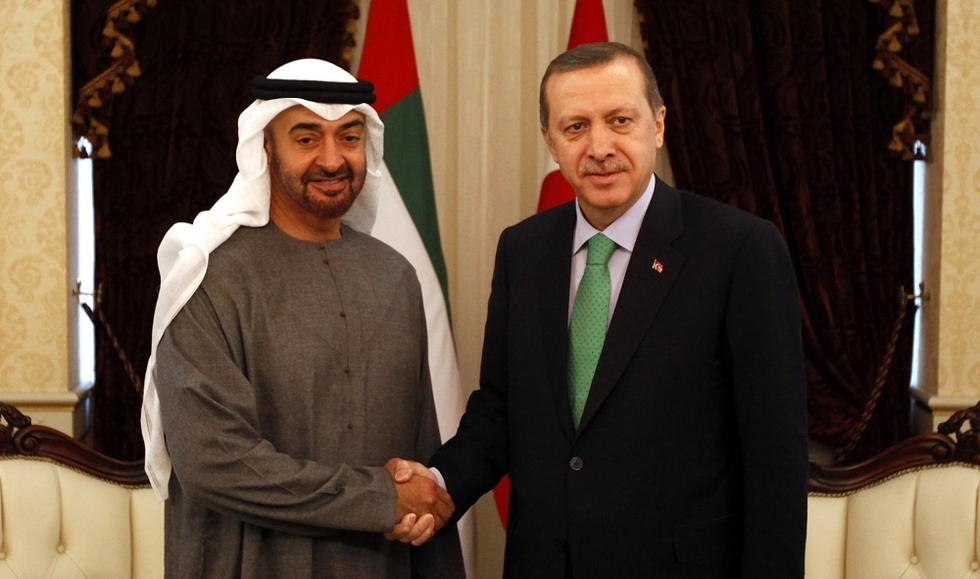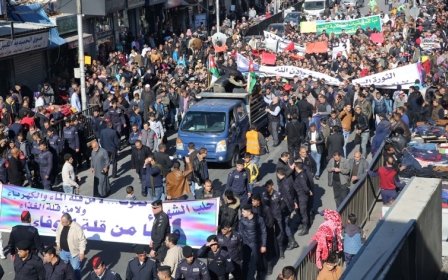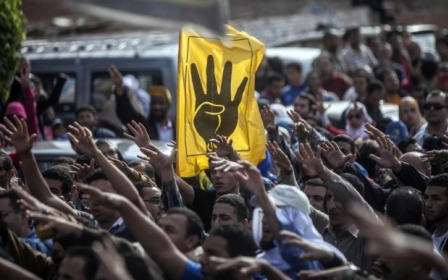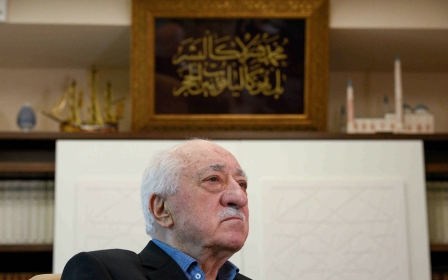UAE to Turkey: Let's trade Gulenists for Muslim Brotherhood

ISTANBUL, Turkey – The UAE has offered Turkey a deal where it is willing to hand over Gulenists to Ankara in return for members of the Muslim Brotherhood, according to a Turkish journalist.
According to Kenan Akin, a columnist at the Turkish newspaper Yenicag, a senior Emirati official told him they didn't even have a problem with a Turkish military base in Qatar as long as Ankara was willing to return nine UAE citizens who are members of the Muslim Brotherhood and are resident in Turkey.
'There are nine terrorists who are citizens of ours. Mr Hakan knows very well who they are'
- Abdullah Sultan al-Nuaimi, UAE foreign ministry
"In Turkey there are nine terrorists who are citizens of ours and work for this organisation and we want them to be returned. Mr Hakan [Fidan, head of Turkey's intelligence service MIT] knows very well who they are," Abdullah Sultan al-Nuaimi, a senior official at the UAE foreign ministry, was quoted as saying.
The report did not mention when the UAE made this proposition to Turkey.
Nuaimi said the UAE understood Turkey's concerns about Gulenists – followers of Fethullah Gulen, a US-based Turkish preacher whom Turkish authorities accuse of orchestrating the failed coup attempt last July.
Turkey has designated Gulen's movement as a terrorist organisation and given it the name FETO (Fetullahist Terrorist Organisation).
"The Muslim Brotherhood means the same thing to us as the FETO terrorist organisation means to you [Turkey]. We have no objections. The problem is the stance on the Muslim Brotherhood. We want to be rid of terrorist organisations," said Nuaimi.
He said the UAE had even arrested and returned two Gulenist generals working with the Turkish Nato force in Afghanistan to Turkey as a sign of goodwill.
"We apprehended two FETO generals who were transiting from Afghanistan via Dubai and returned them to Turkey. We expect Turkey to display the same sensitivity towards terrorists who operate against us," said Nuaimi.
The UAE serves as a regional transit hub for flights to Africa and Asia. The Gulen movement is very active in eastern and southern Africa and also in southeast Asia.
However, Turkish officials have on occasion said that a Gulf country was involved in financing the coup attempt in Turkey, without mentioning any country by name.
Last month a Turkish journalist with close ties to the government, Mehmet Acet, said the country in question was the UAE.
He said the UAE had paid $3bn to the coup plotters and based his claim on remarks made at a private event around seven months ago by the Turkish foreign minister, Mevlut Cavusoglu.
Based on Acet's account, Cauvusoglu at that panel discussion said "we know that a country gave $3bn in support of the attempted coup in Turkey to topple the government illegally. And it was a Muslim country that did this."
'UAE interference'
For a few years now, Turkish bureaucrats have been alleging, in off-the-record comments, UAE interference in Turkish domestic affairs - either directly or through certain Palestinian proxies based in the UAE.
Turkey provides sanctuary to members of the Syrian and Egyptian opposition, including members of the Muslim Brotherhood from those countries.
Gulf states such as Saudi Arabia, the UAE and Bahrain see popular Islamist movements, particularly the Brotherhood, as an existential threat to their rule. They backed the overthrow of Egypt's democratically elected president Mohamed Morsi, from the Muslim Brotherhood, in a 2013 coup led by Abdel Fattah al-Sisi, the current Egyptian president.
Turkey and Qatar have backed these same popular Islamist movements, viewing them as beneficial for the future of the region. Ankara has also strongly opposed the illegal overthrow of democratically elected governments due to their Islamist inclinations.
This was part of the reason Turkey was quick to back Qatar as it was placed under blockade by Saudi Arabia, the UAE, Bahrain and Egypt.
One of the strongest signs of support for Qatar came when Ankara fast-tracked legislation on two military agreements with Doha to operate a military base there.
Nuaimi was also reported saying that "the UAE had no problem with the Turkish military base in Qatar". His remarks contradict the list of demands made of Qatar to end the siege against it.
The removal of the Turkish base in Qatar is among the 13 demands being made of Doha by the Saudi-led block. Doha has rejected all the demands.
Ankara, too, rejected calls for the closure of its base there, saying it will not allow third-party interference in its bilateral affairs with other countries and also that the base was there for the mutual security of the entire Gulf.
Meanwhile, Turkish President Recep Tayyip Erdogan is set to embark on a Gulf tour on 23-24 July to help mediate a negotiated solution to the Qatar crisis. He is expected to visit Saudi Arabia, Qatar and Kuwait. The UAE is not on his itinerary.
Middle East Eye propose une couverture et une analyse indépendantes et incomparables du Moyen-Orient, de l’Afrique du Nord et d’autres régions du monde. Pour en savoir plus sur la reprise de ce contenu et les frais qui s’appliquent, veuillez remplir ce formulaire [en anglais]. Pour en savoir plus sur MEE, cliquez ici [en anglais].




